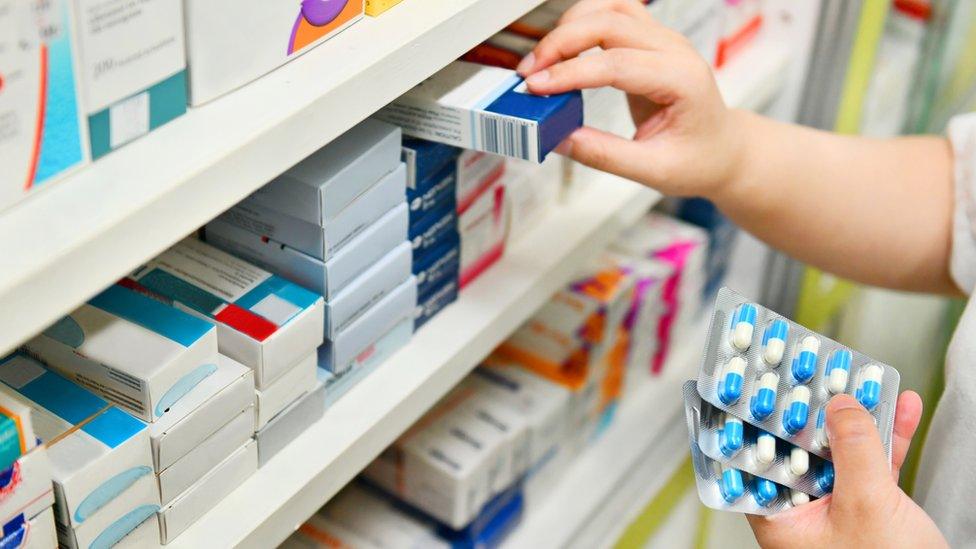NI Protocol: 'More work needed' on EU medicine proposals
- Published

Northern Ireland gets most of its medicines from GB distributors
The EU's proposals to guarantee the flow of medicines from Great Britain to Northern Ireland represents progress but more work is needed, pharmaceutical industry representatives have said.
The NI Protocol means Northern Ireland is still in the EU's pharmaceutical regulatory system.
However it continues to get most of its medicines from Great Britain which is outside the EU's system.
This is creating supply complications with some firms based in Great Britain.
The complications have led to some indicating they will stop supplying products to Northern Ireland.
Last week the EU published proposals to tackle the difficulties, which will include changing EU law.
As it currently stands the protocol would mean most products entering from Great Britain would have to undergo batch testing at laboratories in Northern Ireland, a new and significant expense.
Additionally, anyone responsible for placing those products on the market in Northern Ireland, primarily wholesalers, would need to obtain a licence or "marketing authorisation".
This also requires the oversight of what is known as a "qualified person".

The EU's new proposals acknowledge those requirements are too much of a burden and should be removed, subject to some conditions.
Industry representatives have been giving evidence to a House of Lords committee.
Paul Williams, from pharmaceutical firm Teva, said the original protocol would mean separate marketing authorisations would be needed for medicines being sold in Northern Ireland.
He said this would add so much expense that it would no longer be economically viable to for them to sell around half their 600 lines in Northern Ireland.
However he said the EU's proposals for Northern Ireland to be covered by a single UK marketing authorisation was a significant move.
"One marketing authorisation for the UK for existing treatments was a big concession by the EU, it was a worthwhile concession," said Mr Williams
"It exhibited a willingness to move on the part of the European Commission."
However he said there were other areas which had not been addressed, particularly on the licensing of new products.
Mr Williams said the EU's proposals would mean that new products would still need separate authorisations for GB and Northern Ireland.
'Major hurdles'
Michelle Riddalls, from the consumer healthcare association, said the EU proposals goes "some way to address our concerns for over-the-counter medicines".
But she added that there were still issues to be clarified and worked through.
Ms Riddalls said that some of the import requirements from the EU still look like "an impossibility" for smaller businesses.
Martin Sawer, from the Healthcare Distribution Association, said the EU proposals "have come a long way" but there will still be "major hurdles for some companies" particularly round the issue of labelling.
- Published2 February 2024

- Published18 September 2021

- Published3 September 2021
